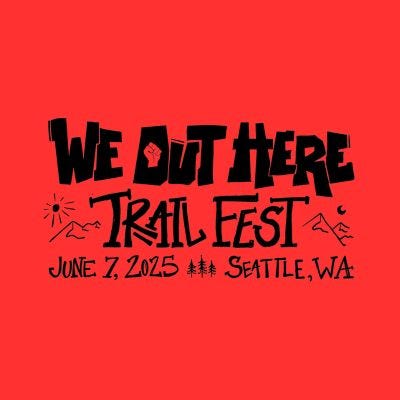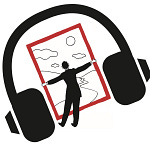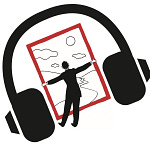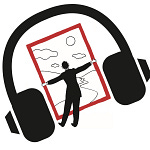She is also the first guest of this newsletter to make a return appearance. You can read and listen to our previous conversation here. 👇
To hear today’s conversation in full, click or tap ▶️ above, or search for “Reframe Your Inbox” wherever you get your podcasts.
Read on for a few highlights, which have been edited and condensed for clarity.
On the state of the world, and why things may get worse before they get better:
To have this relative safety and goodness in my life, when the world is literally falling apart, is hard to make sense of. It’s not like things are completely fine, but compared to people being deported, people being bombed, I don’t have much to complain about.
So long as people are living in relative comfort, there really is no reason to take big actions. That also puts the responsibility back on me and back on us. What are the ways we can be doing more?
It’s going to get bad. I don’t know what that’s going to look or feel like. But [I’m] trying to prepare myself for knowing that we’re really going to start to feel it.
On taking up space—and being aware of taking up space:
I’m very conscious of the space that I take up, what it’s like when I’m in different spaces. [The] same is true for other people—in their physicality, but also in their vibes. There honestly isn’t a place that I go that I don’t think about that.
When I’m in white spaces in particular I’m consciously making decisions: How much of myself can I show in the space? What would be safe? Am I going to do things that are going to meet their expectations? Because often that’s safer. Or am I going to do what’s more authentic to me that might be disruptive? And what are the consequences of being disruptive?
Now as a parent, I see how much that comes up for me with my son. I don’t want to give him my baggage. But assuming he’s cis, he’s going to be a Black man in this world one day, so he has to be conscious of the space.
Maybe we just all need to be more honest about the space we take up, how we feel in space, how other people feel in space.
On the running and outdoor industry’s response to the second Trump era so far:
This would be the time for corporations to be socially responsible and say, “We’re going to risk some of our profit in order to course correct what’s going on with the government. We are not going to succumb to executive orders that don’t apply [to us] around DEI—because we don’t have to.” That’s been really disappointing to see.
I read the other day that there’s a sneaker company that has to pay $150 million more in tariffs this year that they didn’t account for. I don’t care! This is a multi-billion-dollar sneaker company. You have the money. You just need to tell shareholders, “You’re going to make a little less money.” But the idea is, shareholders always have to make more money; therefore, consumers will bear the brunt. That is my problem. My problem is with capitalism.
This idea that we should be feeling sorry and there should be special concessions for sneaker companies because they’re looking out for the rest of us so that we can buy a reasonably priced sneaker—that is untrue. Their concern is profit [for] shareholders. And they’re doing what they can to protect themselves, and nobody else.
On seeing the possibility of a world beyond capitalism:
Why have a company and not use it for good? That just doesn’t make sense to me. But profit is not the thing that drives me most. This probably sounds super naive, but I don’t understand having access to all of that power and really being able to shift a country, a world for the better—and not use it! I can’t imagine that.
I feel really exhausted sometimes. I was thinking the other day [how] it would be so nice if I could just rest during those times and know that somebody’s going to take care of me. And I promise I will take care of you back when you need your rest. That’s actually possible! It’s just that we haven’t built a society that exists that way. We’re measured by productivity. There’s always supposed to be some kind of output. There are people who believe that is the only way to exist.
And I want to challenge people to use your imagination. Things could be different because we are the people that are upholding how things are right now. What would it take for those things to be different? Well, we would have to really start trusting the people around us. That’s also what capitalism does: It sows distrust.
If we unmake all of these things, something else is possible. I believe we will get there. But I think we have to face crisis first.
On the inaugural We Out Here Trail Festival, a “party with a trail race” that will take place on Saturday, June 7, in Washington’s St. Edwards State Park:
For many years, I have had conversations with people in the trail running industry. I’ve called people out. I’ve called people in. I’ve been in conversations with race directors about, How do we make races feel more welcoming to people? How do we invite more people into trail running? Those conversations have not gone anywhere. So I decided, you know what? If nobody’s going to do anything about it, I’m going to be part of doing something about it.
We Out Here Trail Fest is a race that’s built for beginners, for people who have been intimidated, for people who haven’t seen themselves in the trail running community. We have a DJ. We have race distances that you won’t find anywhere else. Sixty percent of people who are running the race have never run a trail race before. I hope with everything that I do, everything positive that I do, that it can show the industry that it’s possible.
We’ve still got a few spots. So if you are listening to this before June 7th, we hope that you will sign up and join us at the We Out Here Trail Festival.2
https://alisonmdesir.com; https://www.pbs.org/show/out-back-alison-mariella-desir; https://www.penguinrandomhouse.com/books/675749/running-while-black-by-alison-mariella-desir
https://raceroster.com/events/2025/98155/we-out-here-trail-festival














